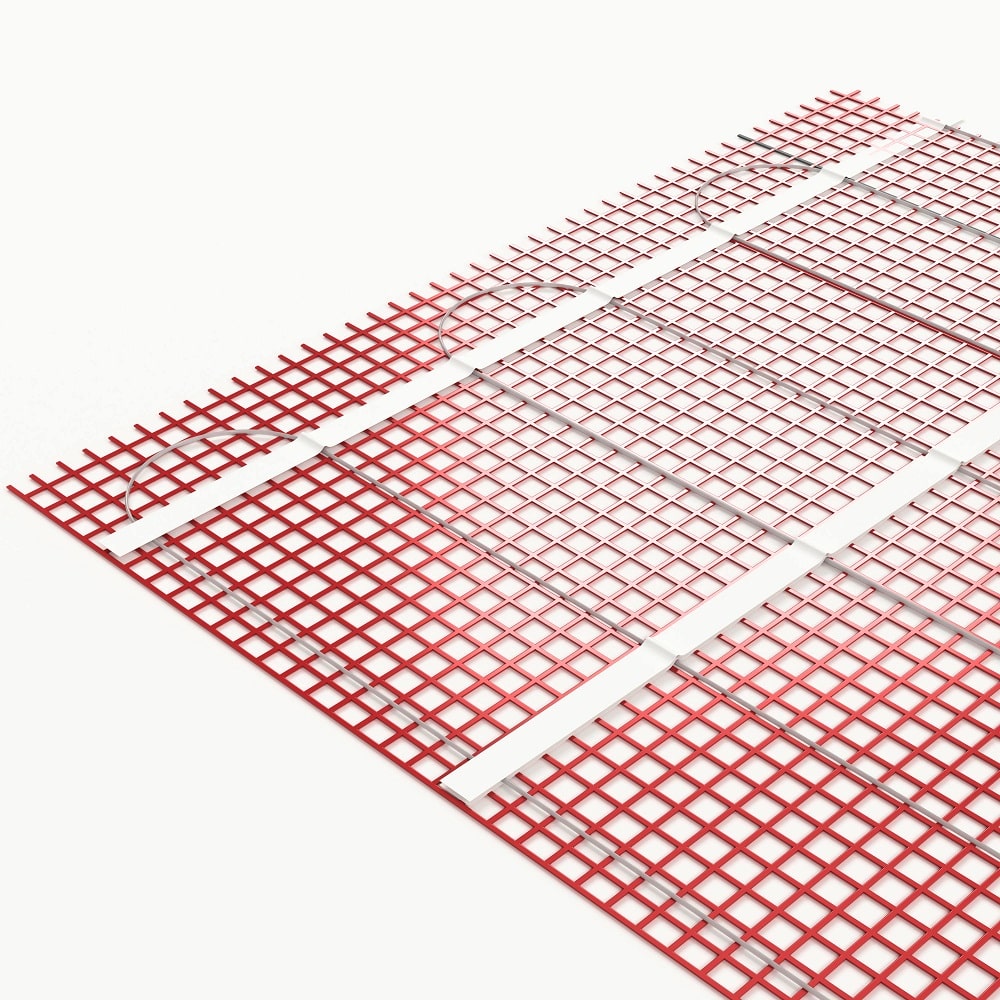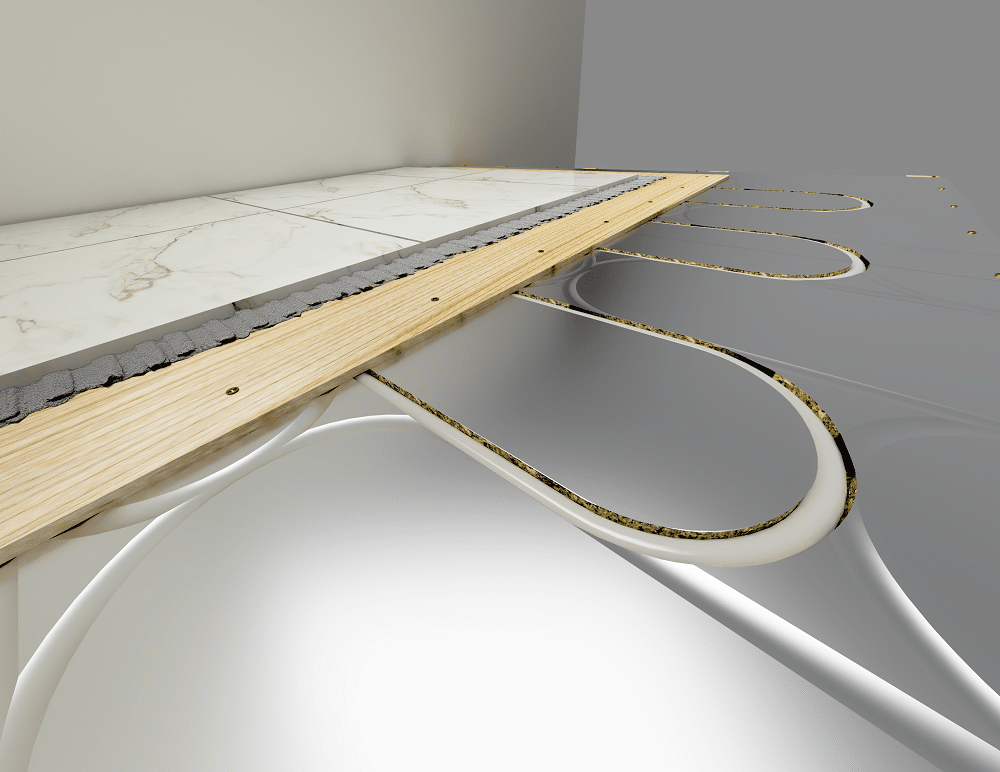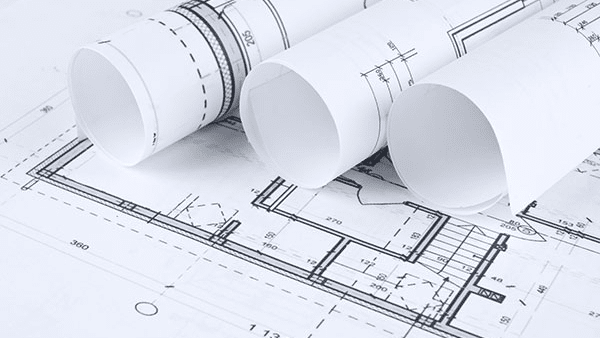Wondering whether a water or electric floor heating system is more suitable for your home? Whilst both options offer great versatility and are designed for a wide range of projects, certain factors may mean that one or the other may be preferable for your needs. In this guide, we’ll explore the main differences between these two technologies, helping you to make the best decision for your new heating solution. You’ll learn more about:
- The main differences between water and electric underfloor heating
- How our range of systems work to heat your home
- The kinds of projects UFH is suitable for
- Whether water or electric floor heating is easier to install
- How much money you could save with underfloor heating
What are the key differences between electric and water systems?
| Electric UFH System | Water UFH System | |
| How does it work? | Electric heating wires or heating mats connected to mains electricity supply. | Heating pipes pump water in underfloor circuits heated by your heat source. |
| What kind of project? | Ideal for renovation projects and for use in single rooms. | Recommended for new-build projects or larger spaces. |
| Running costs? | More expensive than water systems due to tariff prices. | Lower long-term running costs than electric systems. |
| Installation costs? | Cheaper to install than water systems. | More expensive to install but offset by lower running costs. |
| Installation time? | Rapid installation times. Some systems can be installed in 30 minutes. | Will take longer to install. |
How does each type of system work?
Both electric and water UFH systems utilise radiant heat technology to gently warm a room from the ground up, heating the people and objects in a room directly as opposed to central heating systems which will just warm the air of a room. This process is a much more energy-efficient way to heat a home, dramatically reducing energy wastage and providing lowered running costs. Looking for the perfect heating solution for your home? Read our underfloor heating buying guide to discover everything you need to know.
Electric
Electric floor heaters are available as either a heated mat or heating cable-based system and both convert electric energy into radiant warmth. Heating mats use ultra-thin electric heating wires pre-attached to a ready-sized mat which can simply be rolled out and adhered to the subfloor. Heating cables take the form of a free-form electric wire which can be directly installed onto or within the subfloor.
Water
Water systems involve pumping water which is warmed to an optimal temperature by a heat source (a traditional boiler or heat-pump) through heating pipes, also known as circuits, that are laid within a system’s panels beneath your floor finish or within a layer of screed as part of your subfloor.

What kind of projects are water and electric floor heating suitable for?
Floor heating systems can be installed in both new-build projects and home renovations and with no need for visible pipework or bulky radiators, they will provide much greater design freedom for your home too. We offer systems available for use in all room types and with almost all floor finishes.
Electric
If you are working on a one or two-room refurbishment project, electric underfloor heating may be more suitable as it offers quick installation times and will not significantly increase floor heights. Electric systems are perfect for use as primary heat sources in small rooms such as bathrooms or as secondary heat sources in larger spaces. The StickyMat System can be fitted within a layer of levelling compound or tile adhesive beneath your floor covering, meaning it will have no impact on the floor build-up. Looking for an electric heater to use with tiled floors? The DCM-PRO Heated Decoupling System is the perfect choice as it helps to prevent floor tiles from potentially cracking due to subfloor movements.
Water
Due to their more labour-intensive installation methods, water systems are typically recommended for new-build and larger renovation projects where the system will be the primary source of heat throughout the house. Some of these systems will require installation within a layer of screed which will also lead to a greater impact on floor levels than electric heaters. However, the VLo Line of low-profile water UFH systems have been specifically designed for renovation projects.
Is a water or electric UFH system simpler to install?
Installing underfloor heating in your project is often simpler than you might think but all systems should be installed by a fully-qualified installer who was worked with floor heating before. Before purchasing your new system, you should also conduct a heat loss calculation in your home to help select an electric or water system that provides more heat output than the maximum heat loss of the space. All Warmup products are covered by extensive warranties for your peace of mind, including our renowned SafetyNet Installation Guarantee which protects you against any accidental damage to the system during the installation process.
Electric
Electric systems offer rapid installations times with some products being able to be installed and ready to use in a matter of hours. It is recommended that all electric heaters should be installed alongside high-quality floor insulation which will greatly enhance the efficiency of the system and aids in reducing heat-loss.
Water
Water UFH systems will take longer to install than electric systems, with time needed to test the system, the flow and pressure of the water and, in the case of ‘wet’ installations, whereby the heating pipes are installed within a layer of screed, waiting for this to dry before fitting your floor finish. Read out expert guide to find out more about the differences between ‘wet’ and ‘dry’ installation methods for water UFH. All of Warmup’s water systems come with built-in or suggested accompanying insulation materials to help reduce heat-loss.

Which system type can I save more money with?
Floor heating uses less energy than central-heating systems by running at lower temperatures than radiators, whilst producing the same level of warmth: this increased efficiency results in lower long-term running costs than traditional heating options. Running costs will vary on your home’s construction, its insulation, your energy tariff and how you control your heating. You can enhance the efficiency of UFH through the use of one of our Smart Thermostats which will optimise your home’s heating, making sure it is heated at precisely the right time and the right temperature, for your schedule.
Electric
Due to current energy tariffs, the cost of running an electric floor heater will be slightly higher than a water system but you can expect to pay from as little as £1 per week to heat your bathroom with a Warmup heater.
Water
Water systems provide lower long-term running costs compared to electric systems and when using a more efficient heating source such as an air source or ground-source heat-pump, you can enjoy even greater savings.
Which system is more affordable to purchase and install: water or electric?
Underfloor heating offers great value for money and we offer systems for all budgets. When choosing a system, it’s worth investigating the cost difference between a professional plumber installing and connecting a wet system to your boiler versus a qualified electrician wiring the electrical system to the mains supply. Your own project parameters will dictate which is preferable. You can expect to pay around £200 – 300 per day for a qualified tradesperson to install a new heating system in your home. Want to find out how much a new heating system will cost for your home? Get a free, instant quote by using our simple-to-use online quoting tool. We’ll help find you the best water or electric system for your requirements.
Electric
Electric floor heaters are an affordable heating solution for all kinds of projects. Installing our Loose Wire System in a 4m² bathroom with accompanying insulation and a Warmup Thermostat would be approximately £450 + VAT RRP – less than the price of a new bathroom suite.
Water
Wet systems are more expensive to buy and install but cheaper to run in the long-term, meaning the initial costs of specifying a water system can be offset by its lifetime savings. If you’re thinking about installing water UFH in a large project, get in touch with our Projects Division who can work with you in designing a bespoke system perfect for your home.




![Thumbnail [200x250]](/wp-content/uploads/Electric-Category-Page-Image.jpg)
![Thumbnail [200x250]](/wp-content/uploads/Hydronic-Category-Page-Image-1.jpg)
![Thumbnail [200x250]](/wp-content/uploads/6iE-Projects.jpg)